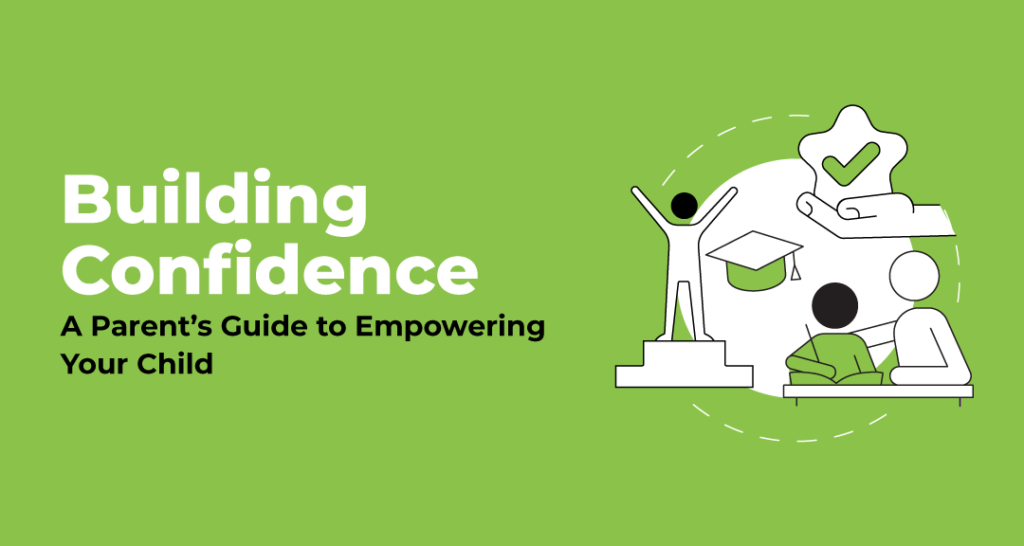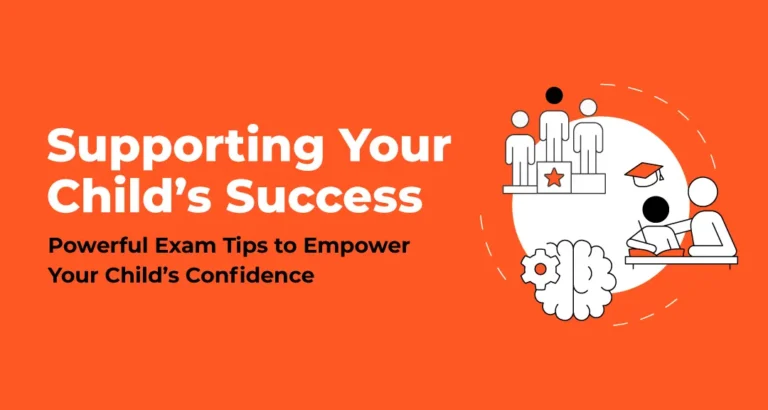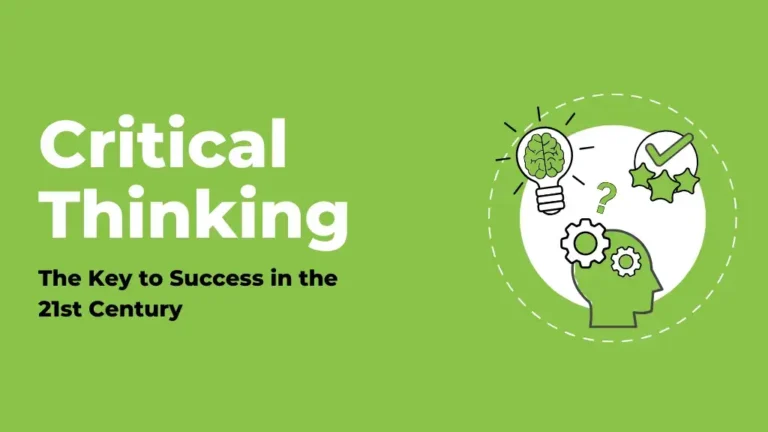Building Confidence: A Parent's Guide to Empowering Your Child
- Parenting
- August 24, 2024
- VOLT Learning

Confidence is the cornerstone of a child’s development. It is instrumental in shaping their path to success and well-being. It empowers them to embrace challenges, pursue their passions, and navigate life’s obstacles with unwavering resilience.
As parents, we hold the key to nurturing this invaluable quality in our children, guiding them towards a future brimming with boundless possibilities.
The Influence of Parental Behavior and Attitudes
Children are sponges, absorbing the energy and emotions that surround them. The way we, as parents, carry ourselves, the words we use, and the beliefs we hold may have a deep impact on a child’s self-perception.
If we approach life with a sense of self-assurance and positive outlook, our children are more likely to internalize these traits and develop a strong sense of self-worth.
Conversely, if we constantly express doubt, criticism or fear, our children may struggle to find the confidence they need to develop in themselves. It’s important to remember that confidence is not a fixed trait, but a skill that can be nurtured and developed over time.
As parents, we have the power to shape our children’s self-perception through the way we interact with them, the challenges we encourage them to overcome, and the unconditional love and support we provide.
Quick Tips for Parents to Enhance Confidence in Children
- Tip 1. Praise Effort, Not Just Outcomes.
In our results-driven society, it can be tempting to solely focus on the final outcome and only praise our children’s achievements. However, this approach can inadvertently send the message that their value is defined by their success, rather than their willingness to try and grow.
As parents, we must shift our mindset to celebrate the hard work, determination and perseverance our children demonstrate throughout their endeavors. Whether they ace a test, master a new skill or fall short of their goal, the true measure of their worth lies in the effort they put forth.
When you praise your child for their diligence, resilience and commitment to improvement, you reinforce the idea that their value is not contingent on perfection. This encourages them to approach challenges with a sense of curiosity and a desire to learn, rather than with the fear of failure.
Over time, this focus on effort rather than sheer outcomes can help your child develop a growth-oriented mindset – a prerequisite for building lasting confidence.
- Tip 2. Foster a Growth Mindset.
Children, who possess a growth mindset, view challenges not as obstacles to be feared, but as opportunities for learning and improvement. This perspective is crucial for developing self-assurance, as it empowers them to tackle difficulties with a sense of resilience and determination.
As parents, we can nurture this mindset by reframing the way our children approach new tasks and setbacks. Instead of lamenting mistakes or shortcomings, help them understand that these are natural and necessary steps in the learning process.
Encourage your child to see challenges as a chance to stretch their abilities, rather than a reflection of their limitations. Remind them that with perseverance and willingness to learn, they can overcome any obstacle that stands in their way.
By fostering a growth-oriented mindset, you can equip your child with the mental tools to embrace failures as learning experiences, rather than let them undermine their confidence. This shift in mindset can have a profound impact on their long-term self-assurance and resilience.
- Tip 3. Encourage Risk-Taking.
Confidence is built through experience. Sometimes, it means stepping outside of one’s comfort zone. As parents, we can support our children’s confidence-building journey by creating a safe and supportive environment for them to take calculated risks.
Applaud your child’s bravery when they attempt something new, even if they don’t succeed on the first try. Celebrate their willingness to try, explore, and challenge themselves, instead of focusing solely on the final outcome.
When your child experiences a setback, resist the urge to swoop in and rescue them. Instead, guide them through the process of learning from their mistakes and trying again. This teaches them that it’s okay to take risks, as long as they approach them with a growth-oriented mindset and willingness to learn.
By encouraging your child to step outside their comfort zone, you can help them develop the confidence to navigate uncertainty and embrace new challenges. This fosters a sense of resilience and self-assurance that will serve them well throughout their lives.
- Tip 4. Listen and Validate Emotions.
When your child expresses their fears or insecurities, resist the urge to dismiss or minimize them. Instead, listen attentively, validate their feelings, and help them find constructive ways to address their concerns.
Often, the fear of failure prevents young learners from giving their absolute best, ultimately leading to a lack of confidence. It is our responsibility to help our children understand that failure is a natural part of life and it is through the mistakes we commit that we learn and evolve.
When your child experiences a setback or fails to accomplish a task, guide them through the process of understanding what went wrong and how they can prevent it from happening again. This approach not only boosts their confidence but also helps develop essential problem-solving skills.
- Tip 5. Model Confident Behaviour.
As the saying goes, ’actions speak louder than words.’ Children are keen observers, and they learn a great deal by watching the adults in their lives. As parents, it is crucial that we model the behavior and decision-making that embodies self-assurance and poise.
When your child sees you approaching challenges with a calm demeanor and self- belief, it sends a powerful message. They internalize the idea that obstacles can be overcome, and that self-doubt need not hold them back. Conversely, if they witness you constantly criticizing yourself or expressing insecurity, they may begin to mimic those negative thought patterns.
By demonstrating self-confidence in your daily life, you give your child a tangible example to emulate. Whether it’s making a presentation at work, trying a new hobby, or navigating a complex situation, let your child see you tackle these endeavors with a positive, can-do attitude.
This not only bolsters their own self-belief but also teaches them that confidence is an attainable and admirable quality.
- Tip 6. Encourage Positive Self-Talk.
The inner dialogue we have with ourselves plays a pivotal role in shaping our confidence and self-perception. As parents, we must be attuned to the way our children speak to themselves, and gently guide them towards more empowering, positive self-talk.
When your child expresses self-doubt, self-criticism or negative thoughts about their abilities, resist the urge to dismiss or minimize their feelings. Instead, help them reframe their inner narrative by focusing on their strengths, talent and past success.
Teach your child strategies for replacing “I can’t” with “I can try,” or “I’m not good enough” with “I’m still learning and improving.” Encourage them to celebrate their efforts, acknowledge their progress, and view setbacks as opportunities for growth rather than failures.
By helping your child cultivate a positive inner voice, you equip them with the mental tools to navigate challenges with resilience and self-belief. Over time, this habit of constructive self-talk can become a powerful confidence-building mechanism that serves them throughout their lives.
- Tip 7. Celebrate Small Wins.
Recognize and applaud your child’s progress and the wins, no matter how small the achievements are. This reinforces the belief inside their heart that every step forward is worth celebrating, and builds a sense of accomplishment.
Additionally, parents must always embrace their trial and error with positive gestures. Children learn best through hands-on experience, where trial and error play a crucial role. As parents, it’s essential that we reframe the notion of failure, viewing it as an opportunity to build self-esteem and foster growth.
Demonstrate to your child the power of perseverance and the rewards that come from hard work and consistent practice. By modeling this determination, you can empower your child to soar with confidence, knowing that success is achieved through resilience, not perfection.
Empower Your Child’s Confidence with Viva Volt
The path to confidence is paved with the courage to take risks and the willingness to learn from our mistakes. By letting children embrace their failures as a stepping stone to growth, parents can help them develop the self-assurance they always look for to reach their fullest potential.
Most importantly, parents have to accept the fact that building confidence within your child is a long journey where patience and consistency are the biggest game-changers. As our children grow and evolve, so too must our approach to nurturing their self-assurance. It is essential that we remain open-minded, continuously seeking out new and innovative ways to support their confidence-building journey.
Whether it’s exploring the latest parenting resources, attending workshops, or ebooks available
online here at the fingertips, parents can leverage a wealth of information and guidance to upgrade their self-confidence building techniques. It is always beneficial to take the time out of a busy schedule and educate or connect with other parents, to refine your approach to empowering your child’s confidence.
Embracing a growth-oriented mindset renders the effort to boost children’s self-confidence engaging, and relevant. After all, the true mark of a confident parent is the willingness to learn, evolve, and provide the unwavering support that empowers our children to reach their full potential.
Together, we can raise a generation of resilient, self-assured individuals who are ready to take on the world.



